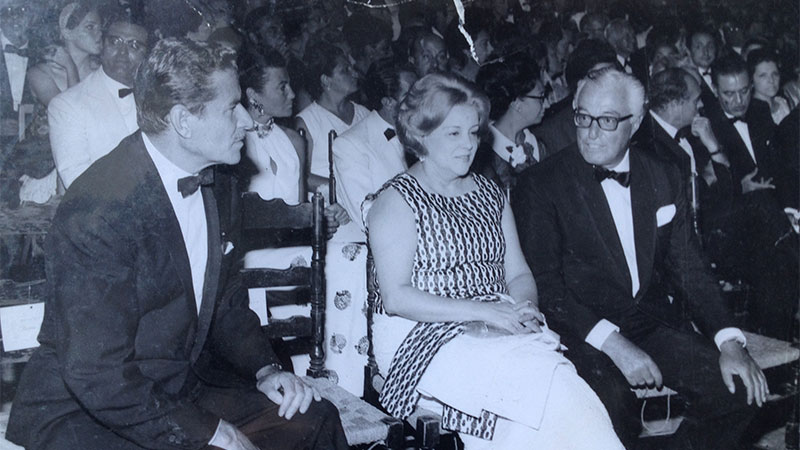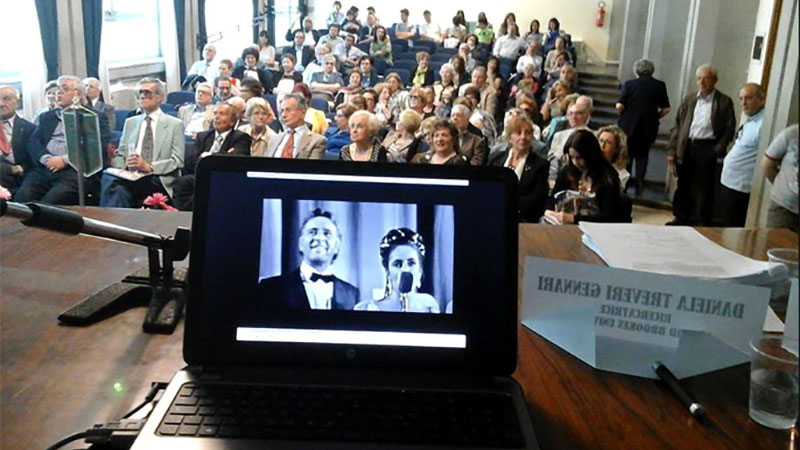The digital exclusion of older people is an important issue for our times and in their work, Professor Daniela Treveri Gennari and Dr Silvia Dibeltulo tackle this head on. Their research to explore post-war Italian film culture has given Italy’s ageing population a voice in the digital world - a voice that is often overlooked in new projects about cultural heritage.
Capturing old memories in the digital age
Professor Daniela Treveri Gennari and Dr Silvia Dibeltulo

The Italian Cinema Audiences project captures in a digital archive the memories of post-war cinema-goers. Participants reminisce about their experiences of cinema in the 1940s and 50s through questionnaires and video interviews. Posters, photos, programmes and leaflets, kept as souvenirs, are also featured.
The result is an accessible digital platform where the public can explore and contribute to the history of cinema-going by sharing personal memories. With 6,900 page views since April 2018, it’s proving a popular way of taking a fresh look at Italian cinema’s history.
A series of 10 public events held across Italy, along with 3 in the UK, attracted over 1,000 participants. In feedback, many said they felt a greater sense of wellbeing by taking part. ‘People my age feel the need to tell about themselves to realise they exist’, one participant explained.
For another, ‘It helps us remember and stimulates our relationship with others’. And the process of remembering ‘the good times’ was helpful too: ‘memories hidden and forgotten in a drawer, dug out with your help.’
The project inspired further cultural projects across Italy. A book on cinemas in Amelia, written by one participant, was presented at the Turin International Book Fair, while in Manduria an exhibition on film culture attracted around 1,500 visitors in one week.
“People my age feel the need to tell about themselves to realise they exist.”
“Memories hidden and forgotten in a drawer, dug out with your help.”
The digital archive is also being used by teachers in Italy and other countries to boost their students’ knowledge of cultural history and their confidence. One teacher noted students’ enthusiasm as ‘they guided their grandparents in the use of the digital archive.’
The new understanding of historic film culture in Italy has also contributed to a wider discussion. Public awareness has risen both nationally and internationally across radio, TV and social media platforms, while the website (in both English and Italian) has attracted over 52,000 page views since January 2015.

Through the project, Daniela and her team of international experts on Italian cultural history have been challenging traditional ‘top-down’ understanding of Italian film culture, giving participants responsibility for curating their own memories.
It’s an approach being adopted by other studies. Daniela is now leading a European Cinema Audiences research project, funded by the Arts and Humanities Research Council, which expands on the Italian one across seven European countries.
As well as highlighting the importance of capturing older people’s autobiographical memories, this work shows how the older generation can bridge the digital divide both as contributors and as visitors to projects online.
Daniela’s groundbreaking research has harnessed older people’s experiences of post-war cinema-going, ensuring it takes centre stage in a digital project. As well as boosting participants’ wellbeing, it has fostered inter-generational connections and increased public understanding of Italy’s cultural heritage. Vitally, the project has also rescued and preserved what might otherwise have been lost. As well as creating a blueprint for others, the work leaves an important legacy for future generations.
